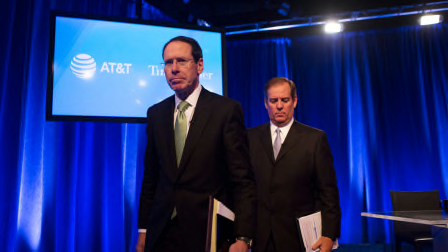The complaint also says that the company’s sheer size contributes to its monopoly power because users are unlikely to want to move to another platform that might not have all their friends and posting history.
“It is unfortunate that despite the court’s dismissal of the complaint and conclusion that it lacked the basis for a claim, the FTC has chosen to continue this meritless lawsuit,” a Facebook spokesperson said Thursday. “There was no valid claim that Facebook was a monopolist—and that has not changed. Our acquisitions of Instagram and WhatsApp were reviewed and cleared many years ago, and our platform policies were lawful.”
In June, a federal judge dismissed the commission’s first stab at an antitrust lawsuit, criticizing the complaint for being light on critical details—but he gave the government a chance to come back with a beefier case. In its new complaint, the commission brought new statistics and evidence to demonstrate Facebook’s market dominance and anticompetitive practices.
The new information in the amended complaint is “convincing,” says Sumit Sharma, senior researcher for technology competition at Consumer Reports. But, he says, the FTC faces an uphill battle in court because judges often interpret antitrust laws narrowly.
“Antitrust reform, as proposed by recent legislative initiatives in Congress, is required,” Sharma says. “Those proposals would restore our laws’ original intent and give agencies like the FTC more power to go after violators.”
Also in June, the judge dismissed outright a separate antitrust case brought by 48 states (PDF) because too much time had elapsed since Facebook purchased Instagram and WhatsApp.
The FTC is asking the court to intervene to restore competition among social media providers—including by forcing Facebook to shed WhatsApp and Instagram, two of the startups whose acquisition helped cement Facebook’s stature. The government also wants Facebook to have to ask for permission for future mergers or acquisitions.
“Facebook’s actions have suppressed innovation and product quality improvements. And they have degraded the social network experience, subjecting users to lower levels of privacy and data protections and more intrusive ads,” said Holly Vedova, acting director of the FTC’s Bureau of Competition, in a statement. “The FTC’s action today seeks to put an end to this illegal activity and restore competition for the benefit of Americans and honest businesses alike.”
Consumer advocates say that battles over the size and power of the biggest technology companies will continue.
A 2020 nationally representative CR survey of 3,219 U.S. adults (PDF) revealed that Americans have deep concerns about the outsize influence of the nation’s tech companies. Three out of 4 worry about the power wielded by platforms such as Amazon, Facebook, and Google. And 8 in 10 say the mergers and acquisitions that helped them grow undermine competition and consumer choice.





















